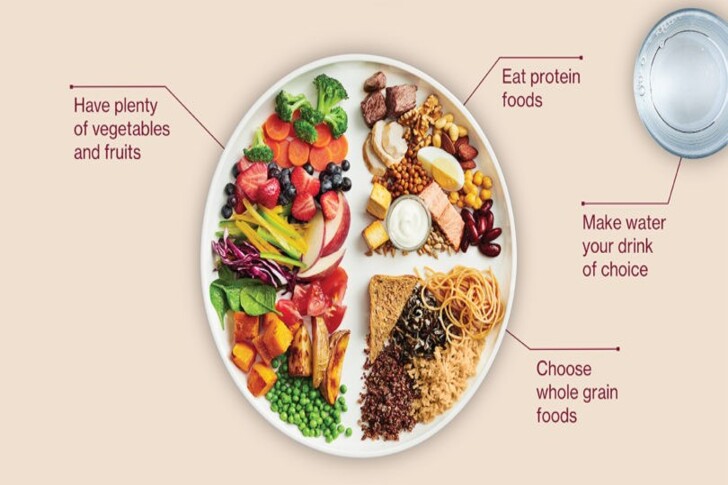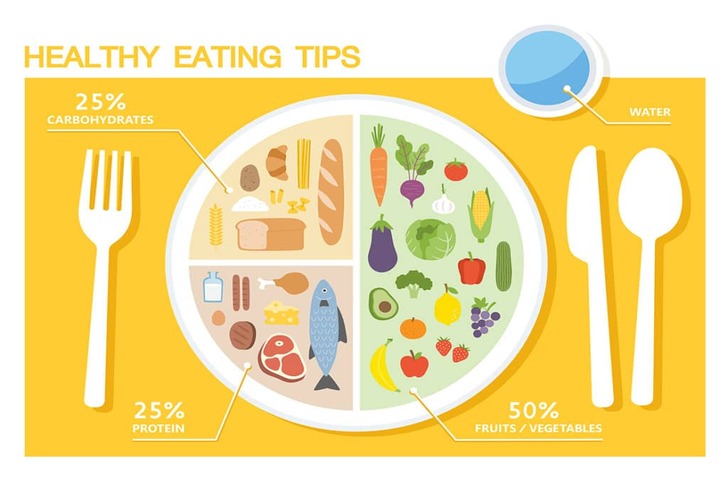Nourish Your Body: A Guide to Healthy Eating and Nutrition
Healthy eating and nutrition are fundamental to maintaining overall well-being and preventing chronic diseases. By choosing nutrient-dense foods, individuals can improve their physical health, mental clarity, and energy levels. From plant-based diets to intermittent fasting, discover the diverse options available to support a healthier lifestyle.
1MIND Diet
0 votes

The MIND diet, which stands for Mediterranean-DASH Intervention for Neurodegenerative Delay, combines elements of the Mediterranean and DASH diets to promote brain health and reduce the risk of Alzheimer’s disease. The MIND diet emphasizes the consumption of brain-healthy foods such as green leafy vegetables, berries, nuts, whole grains, fish, and olive oil. It also recommends limiting the intake of red meat, butter, cheese, sweets, and fried or fast food. Studies have shown that adherence to the MIND diet can significantly lower the risk of cognitive decline and improve overall brain function. The diet’s focus on antioxidants, anti-inflammatory foods, and healthy fats supports brain health and may help preserve memory and cognitive abilities. The MIND diet is flexible and can be easily incorporated into various lifestyles, making it a sustainable option for long-term health benefits.
0
Do you agree? 0% of people agree with your point of view!
2Raw Food Diet
0 votes

The raw food diet emphasizes consuming unprocessed, uncooked plant-based foods, including fruits, vegetables, nuts, seeds, and sprouted grains. The belief is that cooking food destroys vital nutrients and enzymes that are beneficial for health. By eating raw, proponents argue that one can achieve better digestion, higher energy levels, improved skin health, and overall wellness. The raw food diet is rich in vitamins, minerals, fiber, and antioxidants, which can support detoxification and reduce inflammation. However, it requires careful planning to ensure all nutritional needs are met, particularly for protein, calcium, and vitamin B12. Additionally, not all foods are safe to eat raw, and some people may find the diet challenging to maintain long-term. Despite these challenges, many individuals find that a raw food diet helps them feel more vibrant and energized. Incorporating more raw foods into one’s diet can be a positive step towards healthier eating habits.
0
Do you agree? 0% of people agree with your point of view!
3Nordic Diet
0 votes

The Nordic diet is based on the traditional eating habits of Nordic countries like Denmark, Finland, Iceland, Norway, and Sweden. It emphasizes the consumption of seasonal, locally sourced foods, including whole grains, fatty fish, root vegetables, berries, and cruciferous vegetables. The diet also includes rapeseed oil (canola oil) as a primary fat source and encourages the use of herbs and spices for flavor. The Nordic diet is rich in fiber, omega-3 fatty acids, and antioxidants, which contribute to its numerous health benefits, such as improved heart health, weight management, and reduced inflammation. Additionally, it promotes environmental sustainability by focusing on local and seasonal produce. The diet’s flexibility and emphasis on whole, natural foods make it an accessible and enjoyable way to eat for many people. Incorporating elements of the Nordic diet can lead to better overall health and a deeper connection to local food traditions.
0
Do you agree? 0% of people agree with your point of view!
4Gluten-Free Diet
0 votes

A gluten-free diet eliminates all foods containing gluten, a protein found in wheat, barley, and rye. This diet is essential for individuals with celiac disease, gluten sensitivity, or wheat allergy. By avoiding gluten, these individuals can prevent adverse reactions and improve their overall health. The gluten-free diet involves consuming naturally gluten-free foods such as fruits, vegetables, meat, poultry, fish, dairy, and gluten-free grains like rice, quinoa, and millet. Many processed foods also contain gluten, so careful label reading is necessary. A gluten-free diet can lead to improved digestion, increased energy levels, and better nutrient absorption for those with gluten-related disorders. However, it is important to ensure a balanced intake of all essential nutrients, as some gluten-free products can be low in fiber and certain vitamins. With careful planning, a gluten-free diet can be a healthy and satisfying way of eating.
0
Do you agree? 0% of people agree with your point of view!
5Whole30 Diet
0 votes

The Whole30 diet is a 30-day dietary reset designed to eliminate foods that may be causing inflammation or other negative health effects. This diet focuses on whole, unprocessed foods and eliminates sugar, alcohol, grains, legumes, dairy, and certain additives. By removing these potential triggers, the Whole30 diet aims to help individuals identify food sensitivities and improve their overall health. The diet promotes the consumption of vegetables, fruits, nuts, seeds, lean proteins, and healthy fats. Advocates report benefits such as improved digestion, better energy levels, clearer skin, and enhanced mental clarity. However, the restrictive nature of the diet can be challenging for some people, and it requires careful planning to ensure nutritional balance. After the 30 days, foods are reintroduced gradually to observe their effects on the body, helping individuals make informed dietary choices moving forward.
0
Do you agree? 0% of people agree with your point of view!
6Anti-Inflammatory Diet
0 votes

The anti-inflammatory diet is designed to reduce chronic inflammation in the body, which is linked to various health conditions such as heart disease, arthritis, and certain cancers. This diet emphasizes the consumption of anti-inflammatory foods, including fruits, vegetables, nuts, seeds, whole grains, fatty fish, and healthy oils like olive oil. It also recommends avoiding processed foods, refined sugars, trans fats, and red meat. The anti-inflammatory diet supports overall health by providing a rich array of antioxidants, vitamins, and minerals that help to combat oxidative stress and inflammation. Additionally, it promotes healthy digestion and can aid in weight management. Many people find that adopting an anti-inflammatory diet leads to improved energy levels, better skin health, and a reduced risk of chronic diseases. By focusing on whole, nutrient-dense foods, this diet offers a balanced approach to eating that can support long-term health and well-being.
0
Do you agree? 0% of people agree with your point of view!







Recent Comments